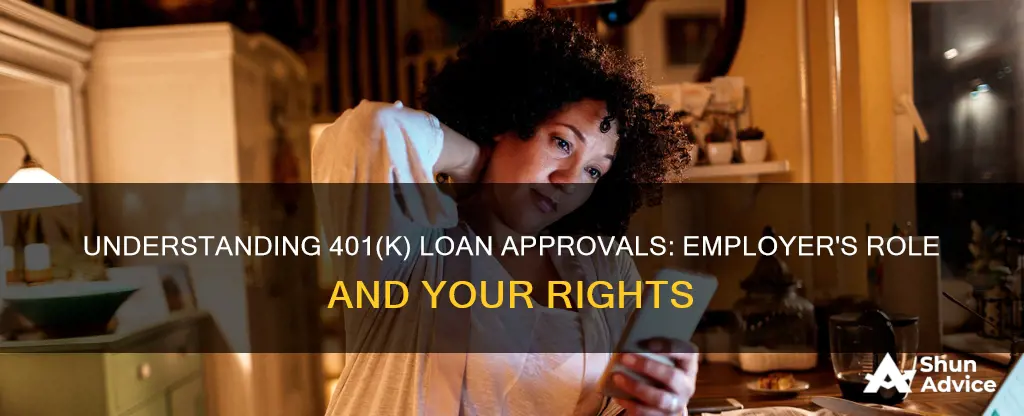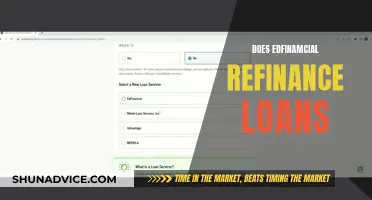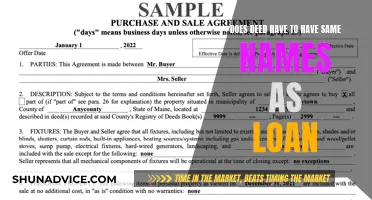
If you're considering taking out a loan from your 401(k) plan, you might be wondering who has the authority to approve or deny your request. It's important to understand that while your employer provides the 401(k) plan, they are not directly involved in approving or denying your loan application. The responsibility for evaluating and making decisions on 401(k) loan applications falls to the plan administrator, who acts as a fiduciary and must work in the best interests of the plan participants. This means that your employer will not have a direct say in whether you can access a loan from your 401(k), but they do play a role in setting the broader terms and conditions for loan options within the plan.
| Characteristics | Values |
|---|---|
| Who approves a 401k loan? | The plan administrator is responsible for approving or denying a 401k loan, not the employer. |
| Who is the plan administrator? | The plan administrator is a fiduciary who manages retirement contributions, distributions, and 401k loans. |
| Who decides the terms and conditions for 401k loans? | The employer decides the terms and conditions for 401k loans and can even disallow them completely. |
| Who will know about the loan? | Certain employees will have access to this information, but immediate supervisors or colleagues are unlikely to have direct access. |
| What is the maximum loan amount? | The IRS allows participants to borrow the greater of $10,000 or 50% of the account balance, up to a maximum of $50,000. |
| What is the repayment period? | Generally, employees must repay the loan within five years and make payments at least quarterly. |
| What happens if the employee leaves the job? | If the employee leaves their job, the employer may require them to repay the full outstanding balance of the loan. |
| What happens if the loan is not repaid? | If the loan is not repaid, it will be treated as a distribution and may be subject to income tax and an early distribution tax. |
What You'll Learn

Plan administrators, not employers, approve 401(k) loans
When applying for a 401(k) loan, it is the plan administrator, not the employer, who is responsible for approving or denying the loan. The plan administrator reviews the submitted documents and evaluates whether the applicant qualifies for the loan. The administrator must ensure that the loan meets IRS guidelines and the company's loan policy outlined in the plan documents. Federal law requires plan administrators to act as fiduciaries, managing retirement contributions, distributions, and 401(k) loans on behalf of the employer. They must act in the best interests of the 401(k) plan participants and not the employer.
A 401(k) plan may allow participants to borrow from their account balance, but it is important to consider the potential drawbacks before taking out a loan. For example, if an individual leaves their job with an unpaid loan, they may be required to pay off the loan sooner than the agreed-upon repayment period. In most cases, the outstanding loan balance must be included when filing taxes for the current year, and it may be considered a deemed distribution, resulting in additional taxes and potential penalties.
The IRS allows 401(k) participants to borrow the greater of $10,000 or 50% of their account balance, up to a maximum of $50,000. It is worth noting that individuals can only borrow from their current 401(k) plan, and the employer will set up automatic payroll deductions to repay the loan. Generally, 401(k) loans must be repaid within five years, and payments must be made at least quarterly.
While a 401(k) loan can provide quick access to funds without resorting to traditional lenders like banks, it is crucial to understand the potential consequences. In addition to the risk of early repayment if employment is terminated, individuals may also miss out on employer-matching contributions during the loan period. Therefore, it is essential to carefully consider all options and ensure that borrowing from a 401(k) is a well-informed decision.
Cosigners and Conventional Loans: What You Need to Know
You may want to see also

Employers have access to 401(k) records
Employers do not have to approve 401(k) loans. Instead, the plan administrator is responsible for approving or denying these loans. That said, employers do have access to 401(k) records.
According to ERISA, employers must retain certain documents and records to meet their fiduciary responsibilities. These requirements apply to both plan-level and individual participant records. For example, Section 107 of ERISA outlines that records used to support plan filings must be kept for at least six years after the filing date. Similarly, Section 209 of ERISA states that records used to determine participant benefits must be kept indefinitely if there is a possibility that they might be relevant to determining the benefit entitlements of a participant or beneficiary.
To meet ERISA standards, employers can organise the necessary records into three files: a "Plan Document File" for the plan's governing documents, a "Participant File" for participant records, and an "Annual File" for annual information. This simple file system makes accessing plan records easy if needed.
Additionally, 401(k) service providers, such as record-keepers, perform annual nondiscrimination testing on the 401(k) plan to ensure compliance with federal requirements and regulations. This testing focuses on participation levels, but other factors can influence the results. To avoid these tests, businesses can offer employer-sponsored safe harbour 401(k) plans that provide fixed matching or non-elective contributions to all eligible participants.
Discover Loan: Sensible Option or Misguided Choice?
You may want to see also

401(k) loans are cheaper than other loan options
When you take a 401(k) loan, you borrow money from your retirement savings account. The plan administrator is responsible for approving or denying your 401(k) loan, not your employer. They will review the documents you submit and evaluate whether you qualify for the loan. The IRS allows 401(k) participants to borrow the greater of $10,000 or 50% of their account balance, up to a maximum of $50,000.
A 401(k) loan is often cheaper than other loan options. For example, if you borrow $10,000 from your 401(k) at a 4% interest rate, the cost of double taxation on the interest is $80. However, if you borrow the same amount from a bank at an 8% interest rate, your interest cost will be $800. This is because the cost of double taxation on 401(k) loan interest is usually fairly small compared to the cost of alternative ways to access similar amounts of cash.
Another benefit of a 401(k) loan is that you avoid paying extra taxes and penalties, unlike with a 401(k) withdrawal. Also, if you miss a payment or default on your loan, it won't impact your credit score because defaulted loans are not reported. Furthermore, as you make loan repayments to your 401(k) account, they are usually allocated back into your portfolio's investments. This can actually increase your retirement savings progress.
However, it's important to note that there are still opportunity costs associated with this type of loan. During the life of the loan, you will miss out on the potential growth of those funds. Additionally, if you leave your job, you may have to repay your loan in full in a very short time frame. If you can't repay the loan, it's considered defaulted, and you'll owe both taxes and a potential penalty on the outstanding balance if you're under a certain age.
Deseret Industries: Study Loans and Financial Aid Options
You may want to see also

401(k) loans are taxed twice
When it comes to 401(k) loans, the plan administrator, not the employer, is responsible for approving or denying them. The plan administrator reviews the documents submitted by the applicant and evaluates whether they qualify for the loan.
Now, regarding the concern of double taxation on 401(k) loans, it's important to clarify that the loan amount itself is not taxed twice. However, the interest paid on the loan can be subject to double taxation. This occurs because tax laws require individuals to pay interest on the loan with after-tax money. As a result, the interest amount is taxed again when it is withdrawn during retirement. Nevertheless, the impact of double taxation on loan interest is often negligible, especially when compared to alternative short-term borrowing options with higher interest rates.
It is worth noting that 401(k) loans are generally considered tax-exempt, and they can be a better alternative to hardship withdrawals or high-interest credit options. Additionally, if you lose your job, you won't need to repay the loan with external assets; instead, the unpaid loan amount will be treated as a distribution and subject to a 10% early distribution penalty and ordinary income tax.
While 401(k) loans can provide quick access to funds without resorting to mainstream lenders, it is essential to carefully consider the risks and benefits before taking out such a loan. Some drawbacks include missing out on employer-matching contributions during the repayment period and the potential for negative tax consequences if the loan is not repaid in a timely manner.
EIDL Loan: Is It Counted as Income?
You may want to see also

Employers can disallow 401(k) loans
While 401(k) loans can be a great addition to a company's financial wellness program, employers are not obligated to approve them. In fact, employers can disallow 401(k) loans. The plan administrator, who is often the employer, has the authority to approve or deny a 401(k) loan. They review the submitted documents and determine whether the applicant qualifies for the loan. Employers may choose to disallow 401(k) loans due to the administrative burden of managing the loan feature or because they do not want employees to have easy access to their retirement funds.
Additionally, employers can set conditions for approving 401(k) loans. For example, they may restrict loans to hardship situations or allow only one outstanding loan per employee. Employers may also require employees to go through the human resources department to arrange the loan and repayment through payroll deductions.
It is important to note that if an employee leaves their job with an unpaid 401(k) loan, they may be required to repay the loan immediately. If they fail to do so, the unpaid amount may be considered a taxable distribution, resulting in income taxes and a potential early withdrawal penalty if the employee is under 59 1/2 years old.
While employers can disallow or set conditions on 401(k) loans, they should also consider the potential benefits. Offering 401(k) loans can drive plan participation and provide financial relief to employees. It allows employees to access funds quickly and privately without contacting mainstream lenders.
In conclusion, while employers can disallow 401(k) loans, they should weigh the potential advantages and disadvantages to make an informed decision that considers the financial wellness of their employees.
Understanding EIDL Loans: Impact on Shareholder Basis
You may want to see also
Frequently asked questions
The plan administrator is responsible for approving or denying your 401(k) loan, not your employer. The plan administrator will review the documents you submit and evaluate whether you qualify for the loan.
No, your employer does not have to approve your 401(k) loan. However, they will know if you take out a loan from your 401(k) portfolio as they have access to these records.
No, you can only borrow from your current 401(k) plan.
The IRS allows 401(k) participants to borrow the greater of $10,000 or 50% of the account balance, up to a maximum of $50,000.







